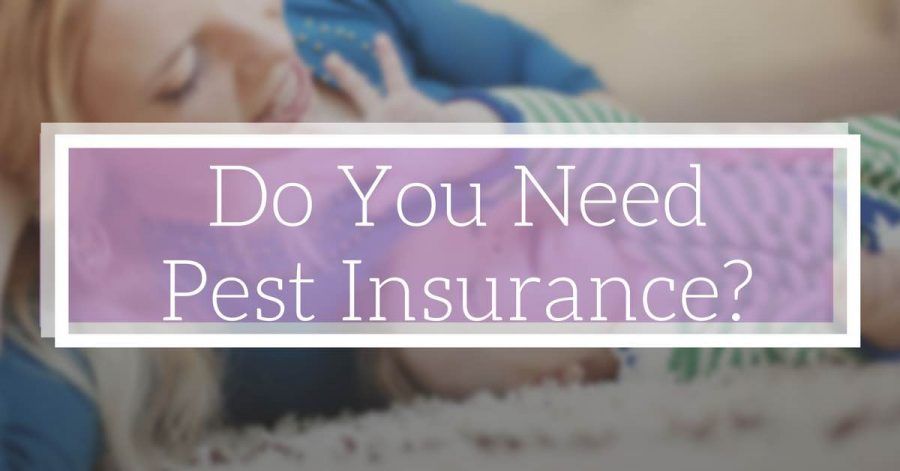
Your home is likely your biggest investment and the biggest purchase you’ll ever make. In the Portland area, homes are selling for a median price of nearly $420,000. When considering such a significant investment, doesn’t it make sense to protect yourself (and your home)?
When financing your home purchase, your lender will require you to purchase homeowners insurance. However, did you know that many, if not most, policies don’t cover pest infestations and possibly the damage that is done to your home by insects and rodents?
In today’s post, we’ll talk more about the limitations of homeowners insurance policies and the advantages of Pest Insurance.
Does Homeowners’ Insurance Cover Insects & Rodents?
The answer is: not always. The only way you can know for sure what is covered by your homeowners’ insurance policy is to actually read it (or even better, have it reviewed by a lawyer who can explain it to you).
Commonly, homeowners insurance policies consider bug and rodent infestations to be maintenance issues that aren’t covered. However, if the infestation damages your home, repairing the damage might be covered – it all depends on the specifics of your policy.
One phrase to watch for in your policy is “sudden and accidental”. Your policy may use this type of clause to limit coverage to sudden and accidental damage to your home (like a pipe that bursts during a hard freeze vs. a pipe that leaks for months and months, causing water damage).
Even if your homeowners’ insurance policy does cover the damage caused by common pests like termites, ants, and rats, keep researching the issue. Depending on your policy’s deductible, will it be worth filing a claim? Preventing infestations from taking hold might make more sense financially and actually save you money in the long run.
How Does Pest Insurance Work?
Think of Pest Insurance as preventive, proactive maintenance built around 4 seasonal inspections and treatments. At EcoCare, as part of our Pest Insurance program, our exterminators will visit your home each season. Our schedule and the common pests we look for include:
- Spring & Early Summer – Wasps, Box Elders, Ants, Spiders, Rodents
- Mid-Summer – Fleas, Yellow Jackets, Hornets, Bees, Rodents, Ants
- Fall – Wasps, Hornets, Box Elders, Spiders, Rodents, Ants
- Winter – Rats, Mice, Ants
What to Expect From Each Visit
On your initial visit, our exterminator will do a full inspection and treatment of your home, inside and out. We’ll walk the perimeter of your home and treat the exterior and foundation of your home for nearly 40 covered pests. Then we’ll head inside and treat interior walls, your attic, and crawlspace. On subsequent visits, our technician will inspect and treat the outside of your home, coming inside if needed.
Best of all, our pest control treatments are eco-friendly! All of our treatments are specifically formulated to be safe for both people and pets while being tough on bugs and other pests! You, your pets, and your children can stay in your home while our exterminators do their work.
Portland Pest Insurance FAQ
Who Should Buy Pest Insurance?
New Homes: Since builders and subcontractors are not trained to keep pests out, there are often small gaps and openings which will allow a rodent easy access and should be excluded or repaired
Older Homes: Often draftier and have more gaps to allow pests to enter your home.
Homes Near Greenbelts, Wooded areas, and Open Spaces: While space around your home is often desirable, this same space provides significant harborage for rodents and insects in your local ecosystem.
High-density Housing: Pests can easily travel from home to home.
What Pests Cause the Most Property Damage?
Did you know…
- Rodents can tear up insulation and wiring in crawl spaces, attics, and walls, leaving unhealthy germs and odors along with thousands of dollars in damage.
- Carpenter Ants and Moisture Ants can hollow out wood in order to nest inside and cause structural damage to your home.
- Even though their life cycle is about 10 days, moth larvae can destroy your favorite wool sweaters!
- A termite colony can eat an entire 2×4 piece of lumber in under 6 months!
How Does Pest Insurance Save Money?
Pest Insurance is an investment! With Pest Insurance,
- Predictable yearly costs are less expensive than unscheduled emergency visits.
- Prevention is less expensive and less invasive than treatment of an infestation.
- Proactive treatments protect against costly repairs for pest damage.
What If a Pest Isn’t Covered?
Not every insect is covered by our Pest Insurance program. For example, Bed Bugs are not included in pest insurance due to the larger amount of time required to inspect and treat for them. Each infestation of bed bugs needs to be individually evaluated and assessed for the treatment protocol.
Additionally, treating for an active rodent infestation is not included in the pest insurance program, but once the problem is solved, a rodent maintenance plan can be added to the regular pest insurance agreement.
With those two exceptions, there is a very low risk of encountering a pest we don’t cover!
What If Something comes up in between my quarterly visits?
We offer emergency touch-up visits in case something becomes an issue on the inside and needs a treatment before the next scheduled visit.
Interested in Learning More About Pest Insurance?
Contact EcoCare and schedule your free in-home consultation today. We’d love to help you protect your home and keep your family, pets, and possessions free of insects and rodents.






